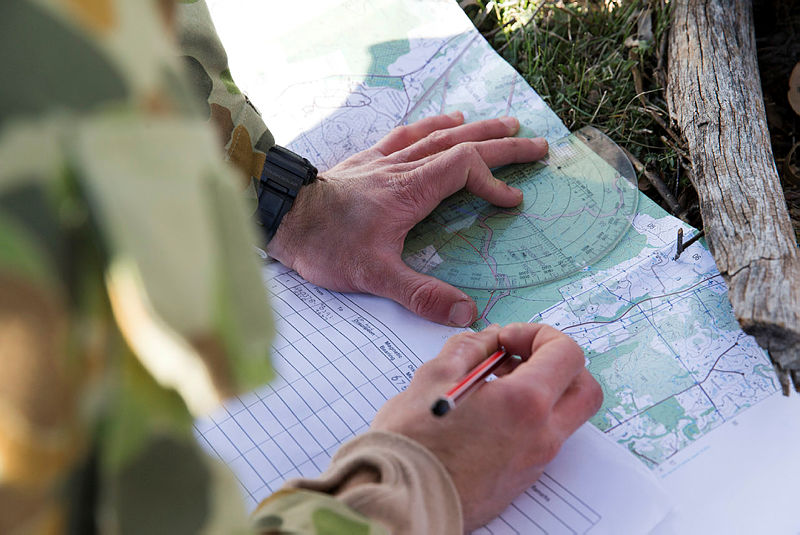
Hugh White’s book How to defend Australia tries to square the circle that has become the global community’s critical security problem: reconciling China’s growing strategic power with the dramatic loss of US strategic authority. China is searching for the authority that it expects as a consequence of its power, but has so far been unsuccessful. The US built its authority through its sponsorship of the post–World War II international rules-based order, an authority it is now abandoning with astonishing recklessness.
This is a critical problem for Australia, as it is for the entire Pacific community. The inherently disruptive policies of China and the US are divergent, and the consequent impossibility of taking secure policy bearings from either of the dominant powers leaves Australia with unprecedented strategic policy and capability planning issues.
As ever, White’s approach is elegant—detached, didactic and relentless in taking the reader to surprising and confronting destinations. The scope of this volume is relatively narrow: how to defend Australia against armed attack by an aggressor state in contemporary and emergent circumstances. It focuses on the kinetics of warfare—the forces necessary to wage war—not the intrinsic politics of war. Passing comments aside, White is less interested in explaining why Australia finds itself in the unsatisfactory defence position he identifies than he is in offering his solution to its consequences.
White has provided a useful summary of his proposals, and Brendan Nicholson has detailed the platform numbers and costs. So there’s no need to rehash them here. White’s foray into nuclear weapons acquisition, however, is curious. He evinces a disarming neutrality on the strategic and moral complexities of this proposal that sits oddly with the robust clarity of his other prescriptions.
At first blush, White’s proposals look achievable, if daunting. But, just as it is impossible to square a circle, so too the issues that give rise to potentially existential strategic problems cannot be resolved simply in terms of kinetics and cash. The relentless focus on the force dimension, without consideration of the intersecting political, economic, cultural and social dimensions, undersells both the complexity of the problem and the pertinence of the solutions.
While not its primary purpose, How to defend Australia implicitly challenges 50 years of strategic policy, defence capability planning and systems acquisition. But the challenge begs the answer to the old gag about how to get to Dublin—you don’t start from here.
The trouble is, if you don’t know why you are where you are and how you’ve got there, it’s difficult to avoid repeating your navigation errors. White offers a concise commentary on Australia’s strategic posture, for instance. But he does not examine the policy effects of Australia’s seemingly entrenched strategic culture.
Australia’s strategic culture is as much an artefact of its history and its politics as of its geography. It displays an ingrained sense of ‘the other’; as fundamental to our inability to reconcile with Indigenous Australia as it is to our preoccupation with the yellow peril and the red menace. Our sense of discomfort in an alien land is exacerbated by the tyranny of distance and its consequent sense of isolation, and reveals itself in Allan Gyngell’s apposite phrase ‘the fear of abandonment’.
An analysis of Australia’s strategic culture, as distinct from posture, might have offered alternative or expanded answers to ‘how to defend Australia’.
White also refrains from evaluating risk- and burden-sharing relationships that could mitigate the military threat that China might pose. There is something of an irony in White’s advocacy of the Palmerstonian concentric circles of strategic interest as a basis for identifying Australia’s permanent strategic interests when Lord Palmerston was himself very much more preoccupied with the statecraft needed to extend Britain’s imperial power than with force expansion.
Our contemporary fascination with the supposed inevitability of conflict between China and the US has perhaps distracted us from Thucydides’ equally important observation that identity of interests is the strongest of bonds whether between states or individuals.
Focused as it is on the physicality of war, How to defend Australia preserves the dichotomy between foreign and defence policy, and dismisses the possibility of more structured diplomatic and defence arrangements with Indonesia or Japan, for instance, as inviting the risk of entrapment or abandonment. Rather, White encourages us to bite the bullet on the question of whether Australia is a ‘middle power’ or a small one. To be a middle power, we simply need to spend more.
But where does the money come from? And it is here that I would have welcomed a frontal assault on a key strategic issue for Australia: population as a driver of economic strength. To reach defence spending of 4% of GDP, we must either substantially cut social policy programs or grow the economic cake. We might have the 13th biggest economy in the world—pro tem—but we have the 56th biggest population. And while that imbalance remains, defending Australia as a middle power will remain problematic and possibly unachievable.
Population impacts as much on manpower as it does on funding. Crewing a six-fold expansion of the submarine force when the RAN cannot crew its fleet of six boats, put enough submariners through the Perisher course to maintain capability, or find the sailors to liberate HMAS Perth from dry dock, highlights the problem.
For me, How to defend Australia is a capstone crowning half a century of Australian strategic policymaking, an epitaph for decades of lost opportunity, pulled punches and ministerial hobbyism. It’s less a new dawn for defence policy than the curtain’s descent on several generations of defence force planning.
It is an important book that begs a sequel.
How to defend Australia is published by La Trobe University Press in conjunction with Black Inc.

